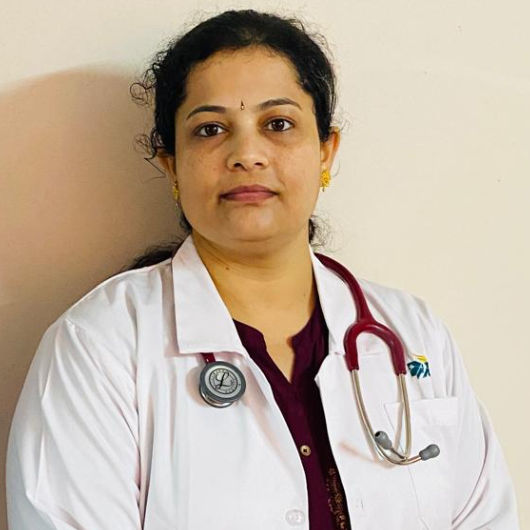Understanding Piles Symptoms, Causes and Treatment
Learn about piles (hemorrhoids), their symptoms, causes, and treatment options. Discover effective home remedies, lifestyle changes, and when to seek medical help for long-term relief.

Written by Dr. Shaik Abdul Kalam
Reviewed by Dr. Rohinipriyanka Pondugula MBBS
Last updated on 13th Jan, 2026

Piles, also known as hemorrhoids, are a common health issue that many people experience at some point in their lives. While they can be uncomfortable and sometimes painful, the good news is that they are treatable and often preventable with simple lifestyle changes. If you or someone you know is dealing with piles, this guide will help you understand the condition, recognize its symptoms, and explore effective treatment options.
What Are Piles?
Piles are swollen and inflamed veins in the rectum and anus that can cause discomfort, pain, and sometimes bleeding. They can develop inside the rectum (internal hemorrhoids) or under the skin around the anus (external hemorrhoids). While piles are not usually dangerous, they can be bothersome and affect your daily life.
Common Symptoms of Piles
The symptoms of piles can vary depending on their type and severity. Some common signs include:
- Pain or discomfort around the anus, especially while sitting.
- Itching or irritation in the anal region.
- Bright red blood on toilet paper or in the stool after a bowel movement.
- Swelling or a lump near the anus (common in external hemorrhoids).
- A feeling of fullness in the rectum even after passing stool (common in internal hemorrhoids).
If you experience severe pain, excessive bleeding, or persistent symptoms, it’s important to consult a doctor for proper diagnosis and treatment.
What Causes Piles?
Piles develop when there is increased pressure on the veins in the rectal area. Some common causes include:
- Straining during bowel movements (often due to constipation).
- Chronic diarrhea or frequent bowel movements.
- Sitting for long periods (especially on the toilet).
- Low-fiber diet, leading to hard stools and straining.
- Pregnancy, as the growing uterus puts pressure on the pelvic veins.
- Obesity, which increases pressure on the rectal veins.
- Aging, as tissues supporting the veins weaken over time.
How to Manage and Prevent Piles?
The good news is that piles can often be managed and even prevented with simple lifestyle changes. Here are some helpful tips:
1. Eat a High-Fiber Diet
Fiber softens stools and makes them easier to pass, reducing strain. Include foods like:
- Whole grains (oats, brown rice).
- Fruits (apples, bananas, pears).
- Vegetables (broccoli, carrots, spinach).
- Legumes (beans, lentils).
2. Stay Hydrated
Drinking plenty of water (8-10 glasses a day) helps prevent constipation and keeps stools soft.
3. Exercise Regularly
Physical activity improves digestion and prevents constipation. Even a 30-minute walk daily can help.
Consult a Specialist for Personalised Advice
4. Avoid Straining During Bowel Movements
Don’t force bowel movements. If you feel the urge, go to the bathroom promptly.
5. Practice Good Toilet Habits
- Avoid sitting on the toilet for too long.
- Use moist wipes instead of dry toilet paper to reduce irritation.
6. Take Warm Sitz Bath
Soaking the anal area in warmwater for 10-15 minutes a few times a day can relieve pain and swelling.
7. Over-the-Counter Treatments
- Creams or ointments (hydrocortisone) can reduce itching and swelling.
- Pain relievers (like ibuprofen) may help with discomfort.
When to See a Doctor
While most piles improve with home care, you should consult a doctor if:
- Bleeding is heavy or persistent.
- Pain becomes severe.
- Home treatments don’t provide relief.
- You notice a prolapsed hemorrhoid (internal hemorrhoid that pushes outside the anus).
- In some cases, medical procedures like rubber band ligation, sclerotherapy, or surgery may be needed.
Final Thoughts
Piles are a common condition, and there’s no need to feel embarrassed about seeking help. With the right diet, hydration, and lifestyle changes, you can manage symptoms effectively. If home remedies don’t work, don’t hesitate to reach out to a healthcare provider.
If you’re experiencing persistent symptoms, you can book a consultation with a specialist on Apollo 24|7 for expert advice and treatment options. Taking care of your digestive health today can prevent discomfort in the future.
Consult a Specialist for Personalised Advice
Consult a Specialist for Personalised Advice
Dr. Indrajit Das
General Physician/ Internal Medicine Specialist
4 Years • "MD (Internal medicine) : Gauhati Medical College and Hospital, Guwahati (2018-2021) MD (Pathology) : Gauhati Medical College and Hospital, Guwahati (2012-2015) MBBS (Bachelor of Medicine, Bachelor of Surgery) : Silchar Medical College, Assam (2003-2008) "
Guwahati
Apollo Excelcare Hospital, Guwahati

Dr. Senthilmuthu K
General Physician/ Internal Medicine Specialist
6 Years • MBBS, MD
Karur
Apollo Hospitals Allwyn Nagar, Karur
(100+ Patients)

Dr. J M Dua
General Physician/ Internal Medicine Specialist
43 Years • MBBS, MD
Delhi
Apollo Hospitals Indraprastha, Delhi
Dr Prachi Sankhe
General Physician/ Internal Medicine Specialist
8 Years • MBBS, MD (Internal Medicine)
Mumbai
Apollo Hospitals CBD Belapur, Mumbai

Dr. B Rachana
General Physician/ Internal Medicine Specialist
8 Years • MBBS, Fellowship in Diabetes, Fellowship in Applied Nutrition,CCEBDM(Diabetes)
Bengaluru
Apollo Clinic, JP nagar, Bengaluru
Consult a Specialist for Personalised Advice
Dr. Indrajit Das
General Physician/ Internal Medicine Specialist
4 Years • "MD (Internal medicine) : Gauhati Medical College and Hospital, Guwahati (2018-2021) MD (Pathology) : Gauhati Medical College and Hospital, Guwahati (2012-2015) MBBS (Bachelor of Medicine, Bachelor of Surgery) : Silchar Medical College, Assam (2003-2008) "
Guwahati
Apollo Excelcare Hospital, Guwahati

Dr. Senthilmuthu K
General Physician/ Internal Medicine Specialist
6 Years • MBBS, MD
Karur
Apollo Hospitals Allwyn Nagar, Karur
(100+ Patients)

Dr. J M Dua
General Physician/ Internal Medicine Specialist
43 Years • MBBS, MD
Delhi
Apollo Hospitals Indraprastha, Delhi
Dr Prachi Sankhe
General Physician/ Internal Medicine Specialist
8 Years • MBBS, MD (Internal Medicine)
Mumbai
Apollo Hospitals CBD Belapur, Mumbai

Dr. B Rachana
General Physician/ Internal Medicine Specialist
8 Years • MBBS, Fellowship in Diabetes, Fellowship in Applied Nutrition,CCEBDM(Diabetes)
Bengaluru
Apollo Clinic, JP nagar, Bengaluru